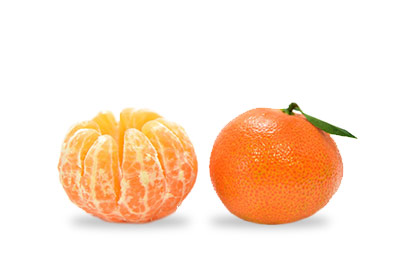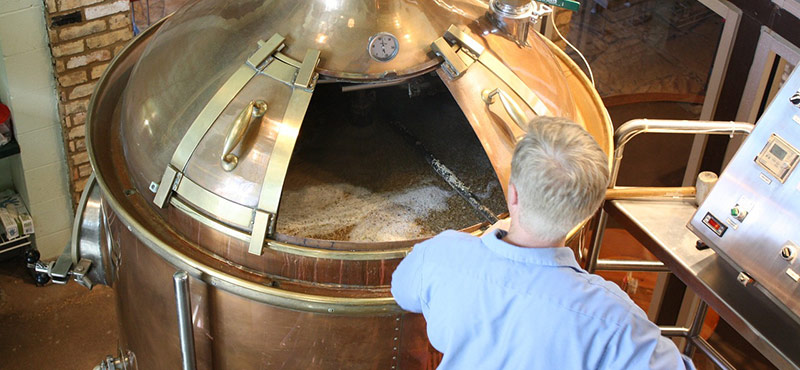User guide
To create uniquely delicious beers, using dehydrated fruits, fruit powders and dried flowers are a must.
Making beer is a fascinating experience. At ANHYDRA, we are truly privileged to collaborate with many microbreweries in their successes. Their use of our dehydrated fruits when brewing beers makes a real difference in the final product and the flavours obtained.
Every brew master has his own tricks of the trade to make their products stand out. Our user guide is inspired by their techniques and seeks to help you learn more about using our dehydrated fruits to make your beers.
Using dehydrated fruits and dried flowers to make beer
This user guide is destined to give you insightful information on how to easily add dehydrated fruits, fruit powders and dried flowers during your beer brewing process. You’ll find the following list of elements for every fruit:
- Type of beer frequently brewed with this fruit
- Quantity in grams per liter (g/L) of dehydrated fruits to add
- Cuts of fruits that may be used
- Quantity equivalent by cup measurement
- Volume differences between dehydrated fruits and fresh fruits
- Brew master’s trick to get a great result
Lemon
You won’t be surprised to learn that the lemon is one of the most often used dehydrated fruits when brewing a new beer. The lemon can effectively give a fresh taste to many types of beer. The aromas and flavours obtained with dehydrated lemon pieces or powder form added to the wort may be very subtle or quite bold. This will depend on the infusion technique used. For beers with or without alcohol, IPA, Stout, Gose, Sour and other types, lemon is a must!

Technical information
Lemon pieces
2 to 4 g/L
Lemon powder
2 to 4 g/L
Lemon pieces
1 kg = 28 cups
Lemon powder
1 kg = 9 cups
1 kg of dehydrated lemons = 7,75 kg of fresh lemons
Brew master’s trick
Adding the right amount of lemon can vary a lot and depends on the lemony taste wanted. Our brewer clients all have their favourite recipe. The one thing they have in common in their beer creation is the dose of 4 g/L pieces of lemon added 5 to 10 minutes before the wort boiling process ends.
Clementine
The clementine is an excellent way to add a unique exotic freshness to microbrewery beers, especially white ones. Many of our clients use dehydrated clementine pieces or powders when they brew their beers, which are akin to Belgian ones.

Technical information
Clementine pieces
4 to 5 g/L
Clementine powder
3 g/L
Clementine pieces
1 kg = 41 cups
Clementine powder
1 kg = 7,5 cups
1 kg of dehydrated clementines = 6 kg of fresh clementines
Brew master’s trick
For a really interesting result, add 3,75 g/L of clementine powder directly into the wort, 5 minutes before the boiling process ends. This makes the brewing process easier and does not add the water contained in the fresh fruit.
Lime
Although it’s often compared to lemon, lime has a more pronounced bitterness and its own bright tangy flavours. Dehydrated lime pairs well with blond, white or seasonal beers. It gives them a refreshing summertime taste. Adding a smaller amount of this fruit makes it possible to use dehydrated pieces of lime or fruit powder to replace lemon.

Technical information
Lime pieces
2 g/L for a blond beer with a subtle taste of lime.
3,5 g/L for a seasonal beer.
Lime powder
1 g g/L for a slightly more bitter white.
Lime pieces
1 kg = 32 cups
Lime powder
1 kg = 9,5 cups
1 kg of dehydrated lime = 6,5 kg of fresh lime
Brew master’s trick
With lime, everything stems from the dosage and the period of infusion. To get a Mexican style beer with its milder taste of lime, infusing 2 grams of dehydrated pieces of this dried fruit per liquid liter of wort for 20 minutes at the boiling point will provide a very good result.
Combined with other dehydrated fruits such as lemons and oranges, lime provides a more pronounced and citrussy taste. Steeping such a mixture of this dehydrated trio of fruit pieces for 48 hours during the fermentation period has given a Grisette beer with an undeniably perfect taste!
Orange
The dehydrated orange is ideal for adding a sweeter and a slightly acidic taste to microbrewery beers. With or without alcohol, including pieces of dehydrated orange or powder form is perfect for producing a light beer such as a white IPA or a sour beer to sip on a beautiful summer day.

Technical information
Orange pieces
0,3 g/L to 4 g/L according to the taste wanted.
For a white IPA, 3 g/L is a good dosage.
Orange pieces
1 kg = 35 cups
Orange powder
1 kg = 7,75 cups
1 kg of dehydrated oranges = 6,5 kg of fresh oranges
Brew master’s trick
Adding pieces of dehydrated oranges into the hop back will permit a very efficient extraction of orange flavours as the hot wort passes through it. Depending on the result wanted and the type of beer to brew, the dosage will vary between 0,3 g/L and 4 g/L.
Grapefruit
The grapefruit is a sour and less sweet citrus. Including pieces of dehydrated grapefruit to brewing beer is a bonus, especially for white beers such as a RYE IPA with their higher alcohol content. The fruity bitterness of grapefruit is also a nice option for lighter beers such as the Berliner (Berliner Weisse), Pilsner or those without alcohol.

Technical information
Grapefruit pieces
2 to 4 g/L
Grapefruit powder
2 to 3 g/L
Grapefruit pieces
1 kg = 26 cups
Grapefruit powder
1 kg = 7,5 cups
1 kg of grapefruit = 7,5 kg of fresh grapefruit
Brew master’s trick
For a slightly sweet fruit flavour and a well felt tartness, add 4 g/L of dehydrated grapefruit pieces 10 minutes before the wort stops boiling. For a more subtle taste, reduce the dosage to 2 g/L and add the pieces 5 minutes prior to the end of the boiling process.
Pitaya and litchi
Together, the pitaya and the litchi infuse elegant and slightly sweet flavours to beers, reminding us of the delicate perfumes of the rose and muscat. This mix of dehydrated fruits perfectly suits brewing top-fermented beers like the Bernliner Weisse, a refreshing white beer with a very little alcohol content.

Technical information
Pitaya powder
5,4 g/L
Litchi powder
5,4 g/L
Pitaya powder
1 kg = 8 cups
Litchi powder
1 kg = 11 cups
N/A
Brew master’s trick
The pitaya and litchi fruit powders are directly added to the wort during the second phase of fermentation, when 90% of the production is complete. To avoid oxidation and have the powder particles float up, especially if they’ve gathered as a mass on the bottom of the vat, add CO2 through the underside of the hop back. This gives confirmed results.
Hibiscus
Dried hibiscus is the quintessential ingredient to give beers a notable rosy tint while its infusion also offers acidic and floral aromas. These mild flavours do have character! Dried hibiscus works beautifully with mild wheat beers, white IPAs as well as Belgian style white beers.

Technical information
3 to 4 g/L according to the shade ( hue, tint ) of pink wanted.
Dried Hibiscus
1 kg = 10 ¾ cups
N/A
Brew master’s trick
Dried hibiscus is added 15 minutes after the end of the wort boiling process and this brew should stand for 30 minutes. To use a dosage of less than 2 g/L of these dried flowers has given a much too pale pink colour to beer and unsatisfactory results for brewers.
Test with our samples
Creating a new beer is an art. Patience is required as are many tests before getting a satisfying final product. Incorporating dehydrated fruits when brewing beer definitely adds flavours to it. But to get the taste a brewer really wants, different dosage and infusion trials are required.
We know you are passionate about exceptional beers and we’d like to collaborate in your creations. This is the reason we offer dehydrated fruit samples as well as advice about their usage.
Maximum flavour
At ANHYDRA, we are proud to respond to the needs of microbreweries and provide them with high quality dehydrated fruits and dried flowers. Using them makes adding aromas easy during the brewing phase of every type of beer for a few reasons. The flavours are more concentrated in a dehydrated fruit than in a fresh fruit; their manipulation is much simpler because they’re ready to use and their infusion doesn't add the fruit's water. Last but not least, dehydrated foods keep much longer and avoid unwanted losses and waste.
Brew unique tasting beers with our team’s expertise!

